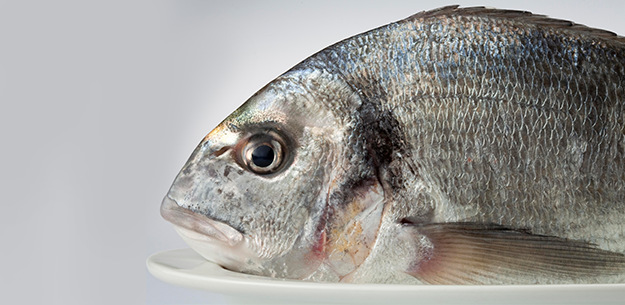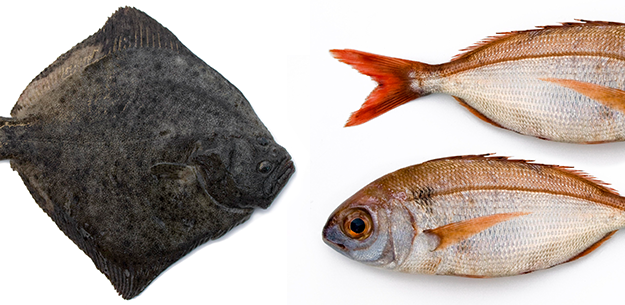.png.transform/rendition-xs/image_image%20(1).png)
Farmed Fish & Aquaculture
Large-scale aquaculture has only really taken off in Spain in recent decades. The introduction of new technologies has now made fish farming a real alternative to conventional capture fishing. It also provides a way of counterbalancing the alarming decline in fish stocks while meeting domestic and international demand.
The farming of certain fish species, especially freshwater species and certain mollusks, has been practiced since immemorial time. Fish-farming was apparently invented by the Chinese in 2500 BC. However, there are also references to the farming of species like oysters by the ancient Egyptians and Greeks. The Romans installed both fresh and saltwater tanks in their homes to breed eels and morays, and carp, trout and other species were bred during the Middle Ages in river ponds near abbeys and monasteries.
Mollusks
Perhaps the most significant species farmed in Spain are mollusks. The most important and traditional one is the mussel, which was first farmed in the Galician rias (inlets) in the 1940s. With their rich Atlantic waters, the coasts of Galicia are the ideal environment for raising top-quality mussels. They are exported to many markets where their size and succulent orange flesh are highly appreciated.
The mussels produced by the traditional method of floating rafts comply with the strictest quality controls, and are rich in protein, vitamins and minerals. One hundred grams (3½ oz) of mussels are sufficient to meet the daily protein requirements for an adult. Today, Spain is the world’s second largest producer of mussels after China. Galician mussels have a place of honor in local gastronomy and festivities, and have a Protected Denomination of Origin (PDO) status with Mejillón de Galicia.
Other mollusks cultivated in Galicia include oysters – also using the raft system –, as well as clams and cockles, which are cultivated in beaches. Oysters, clams and mussels are also farmed in parts of the Mediterranean like Catalonia and Valencia, as well as along the southern Atlantic coast of Spain in Andalusia.
Saltwater fish
Galicia is also the focal point for another of the most important species farmed in seawater in Spain: turbot, which is produced in facilities located on land. The farming of new species like sole, blackspot seabream and octopus is also gradually starting up in this part of Spain.
Gilthead bream and Sea bass are produced in the warmer waters along the Mediterranean and southern Atlantic coasts. Various systems are used – mostly floating pens – but there are also semi-extensive methods, such as those established along the coast of Cádiz and Huelva, where ponds have been created on former salt pans. Bluefin tuna is also farmed in Murcia and Catalonia, eels in the Valencian Community and meager Meagre and Seriola in Valencia and Andalusia. Spanish aquaculture is rich in marine species!
Freshwater fish
The most widely-produced freshwater fish in Spain is rainbow trout, which is extensively farmed in Galicia, followed by Castile-León,Castile-La Mancha and other regions. On a much smaller scale, other freshwater species such as tench are being farmed in reservoirs and lakes in Extremadura and, to a lesser extent, in Castile-León. Sturgeon, and its valuable caviar, are being produced in the upper reaches of the river Guadalquivir (Sierra Nevada, Granada) and in parts of the Pyrenees in Navarre and Lleida. Additionally, there are crab farms in the Guadalquivir marshlands of Andalusia.
Aquaculture in Spain today is a sustainable industry that takes special care of the natural environment in which it takes place and is made up of competitive companies using traditional knowledge alongside the most advanced technology. Their products account for about one third of Spanish seafood production, guaranteeing the presence of a large number of species on our tables and assuring maximum quality and freshness. There is no doubt that Spain is a nation of fish-eaters, and fish and shellfish enjoy a place of pride in Spanish cuisine, not only in coastal areas, but all over the country.



- /content/dam/en/icex-foodswines/images/products/farmed-fish---aquaculture/Farmed_fish_carr_1.png
- /content/dam/en/icex-foodswines/images/products/farmed-fish---aquaculture/Farmed_fish_carr_2.png
- /content/dam/en/icex-foodswines/images/products/farmed-fish---aquaculture/Farmed_fish_carr_3.png

